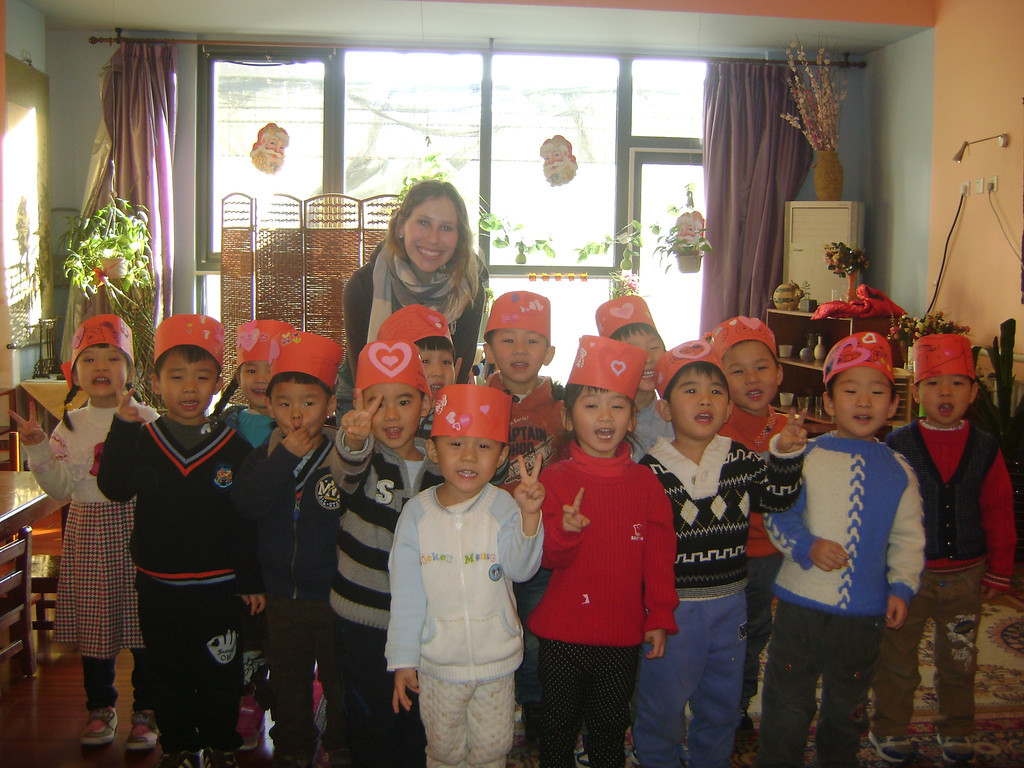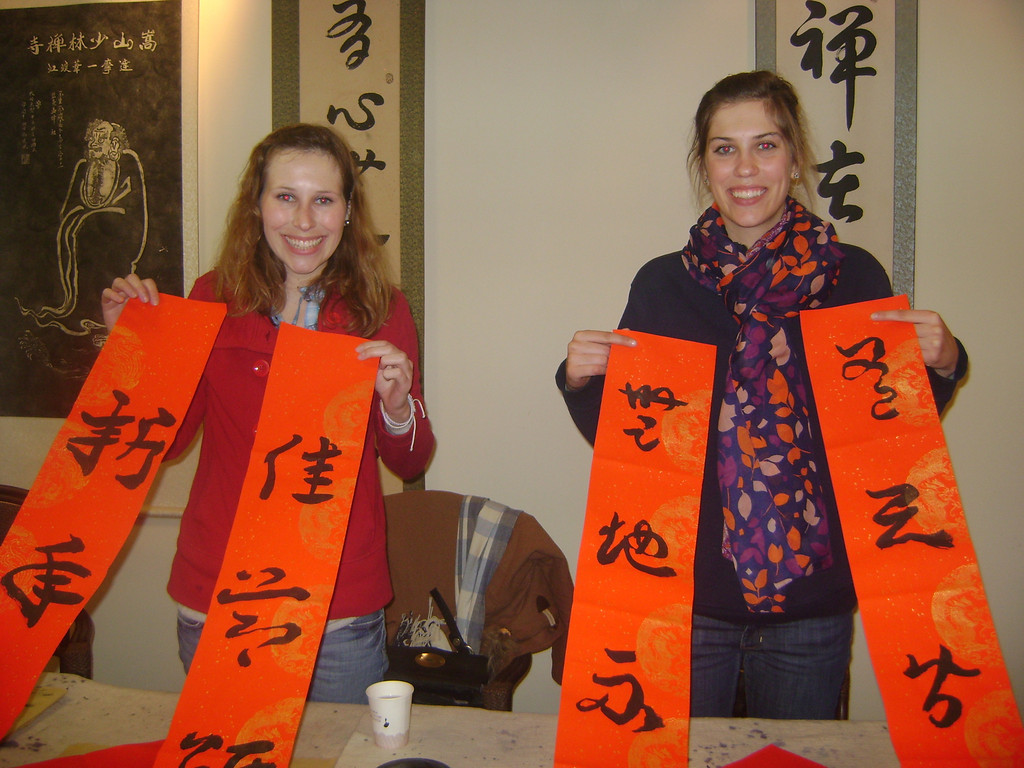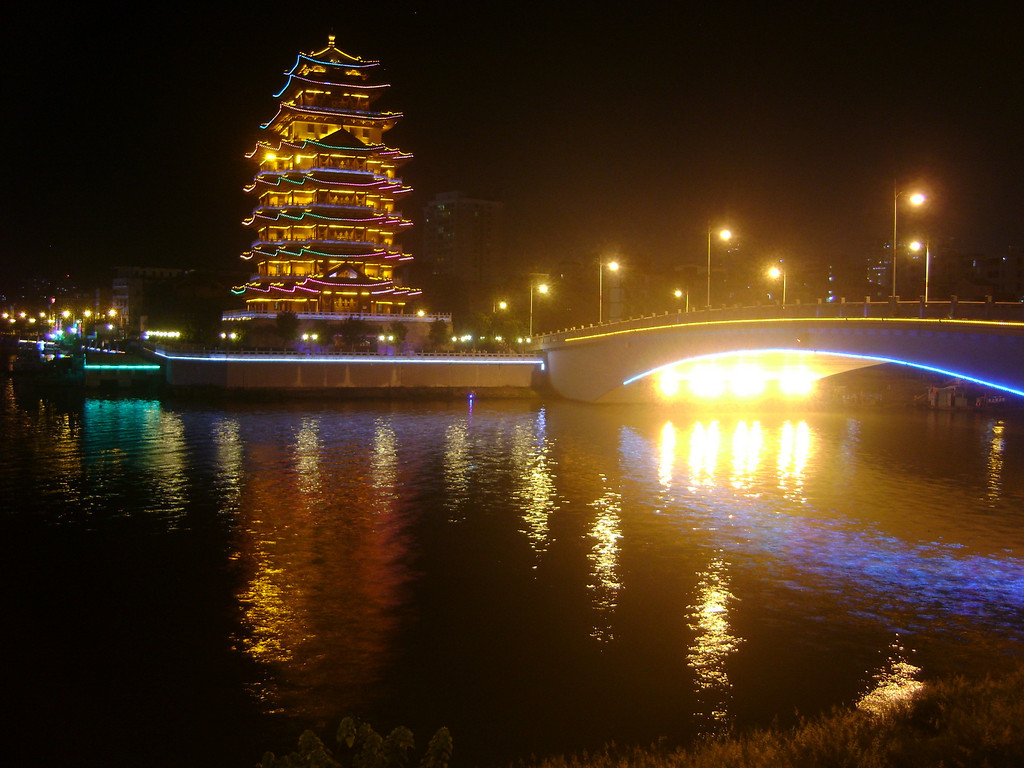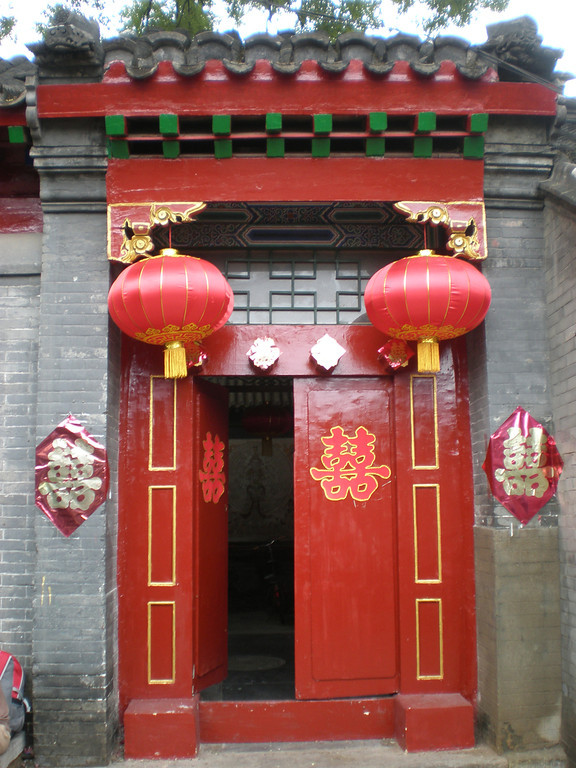
Have you ever wanted to visit an incense-filled temple on a misty mountain side? Run along the top of the Great Wall of China? Feed pandas with a bamboo pole? If so, teaching in China might be a good choice for you.
After earning my TEFL, I applied to jobs throughout Asia. I was intimidated but intrigued by China. I accepted a job in Huizhou, a small city near Hong Kong. Websites comically described it as “pretty, especially for China.” Later, when my sister graduated from college, we applied to jobs together and were hired by a kindergarten in Beijing. Living and teaching in China was an adventure every day. It was challenging and humbling, but also amusing and amazing.
Teaching English in China – My Experience
In Huizhou, I worked at a language school. We taught Wednesdays through Fridays in the evenings and all day Saturday and Sunday. Monday and Tuesday were our weekend. We were some of the only foreigners in town so the odd work week didn’t restrict our social life too much. In an isolated area, your co-workers will probably also be your best friends.
Teaching in China I taught all levels from kindergarten to middle school for an hour each, totaling 22 hours each week. The school provided books for each level for the teachers and students (while this may seem like an obvious necessity, other schools I’ve considered teaching at didn’t have books or a specific curriculum). We planned and prepared our own lessons. We had lots of training for sharing ideas and methods. I also had a Chinese assistant to help with behaviour, difficult concepts, and parents.
Later, in Beijing, my sister and I worked in a Montessori kindergarten. We worked a normal Monday to Friday work week. I was in one class for the whole day from 8-5. I also had a local Montessori-trained co-teacher and two local assistants. That meant we had four teachers for 24 students! Much of the day was Montessori work time, which meant I had to learn a lot about the Montessori philosophy and how to implement it. We had a week of training before the school year started but much of my training was hands-on in the classroom.
Students in China can be quite reserved at first. Many of them have a hard time with critical thinking and creativity. It was fun to help them test their limits and find new skills. They are diligent workers and caring people.

My kindergarten class in Beijing on Valentine’s Day
Accommodation for English Teachers in China
In Huizhou, the school provided us with housing. The school owned two 5-bedroom apartments side by side. The apartments were a couple of blocks from the school. I shared bathrooms, a living room and a kitchen with the other teachers. The school also provided a cleaner who came twice a week.
In Beijing my sister and I had to find our own accommodation. The school sent us out with a translator and a realtor who showed us a few different options. Unfortunately, the translator quit a couple of weeks later and we never got our deposit back for the apartment. We presume the two events are related. We had a small private apartment and some friendly neighbors, both Chinese neighbors and expats.
What Languages Do English Teachers Need to Speak to Teach in China
In the classroom, I only needed English. Beyond the school walls, however, I was glad to know some Chinese. My school in Huizhou gave us free Chinese lessons once a week.

Chinese calligraphy class
An assistant teacher from the Sichuan province was our Chinese teacher. She carefully explained the tonal language to us. If you have an ear for the tones, Chinese isn’t too tough. They don’t have tenses. Many words are simple and short, or made of a compilation of other short words. I found speaking Chinese to be fun, almost like singing. Chinese people are usually quite impressed when you can speak a few words and more inclined to try to help. It really motivated me to learn more. Also I found in the markets, I could get a cheaper price if I bargained in Chinese. Speaking some of the language really improved my experience in China.
Here are a few key phrases (accent marks show which way your voice should move. I’ve also included my best attempt at spelling out the pronunciation)
n? h?o nee- how hello
xiè xie shee-ah, shee-ah thank you
duì bù q? dwe boo chee sorry
x? sh?u ji?n shee shwo jee-an bathroom
n? li nah lee where (and also there)
Expat Life in China
In Huizhou, I often felt like a celebrity. Random people would shout “hello” from passing cars, across a park, or from the other end of a store. In my spare time, I joined our school’s soccer team, which meant weekly matches and socializing afterward. I also liked walking through the local markets and by Xi Hu (West Lake) and Hong Hua Hu (Red Flower Lake). There was a good nightlife in Huizhou, including bars and clubs. It was busy even on our Monday-Tuesday weekend! There was a WalMart in town and a couple of local grocery stores as well. A couple of months before I left, Starbucks came to Huizhou. I’m sure the small city is modernizing more by the minute.

Huizhou at night
Beijing is packed with people, including loads of expats. This means lots of opportunities for events, clubs, and fun. Hey-robics is a Swedish form of fitness that Linus, the founder’s son, has brought to Beijing. It’s group fitness in a big circle with lots of dance moves, jumping, and wild outfits. They also held a running camp leading up to the Great Wall Marathon (during which I participated in the 10K). There is also a group called MashUp that runs intramural sports, including football, basketball, dodgeball, etc. There is a great magazine called “The Beijinger” that describes upcoming events, new restaurants, local traditions, popular shops, classifieds and more. Beijing has a café-library called the Book Worm. It has a library of foreign books you can check out as well as many events and good food! There are local grocery stores and foreign food specialty stores. Beijing is a great place to be an expat.
Food in China
Thousand year old eggs, chicken feet, roasted scorpion, and drunken shrimp (served live in local liquor!). These are foods I’d say you have to be daring to try! The Chinese do admittedly have a LOT of bizarre food dishes. There is a humorous saying about Cantonese food: they eat anything with four legs except a table, anything with two legs except man, anything that swims except a submarine, and anything that flies except an airplane.
However, there are also some truly, truly delicious dishes in China that I have to admit I crave regularly. I love Chinese hotpot- a soup cooked at the table that you put your own meats and vegetables into. Sichuan food is infamously spicy and I miss the numbing peppercorns. Macao-style egg tarts are fantastically buttery and flakey. Cantonese dim sum has such an amazing variety of little dumplings and steamed dishes that come around in bamboo baskets stacked high on small carts. Beijing duck is juicy and tender with a perfect pairing of plum sauce and thin pancakes. Noodles are popular everywhere but slightly different in each restaurant. Also, there’s great barbeque on the street! The key to Chinese food is to order carefully. Many restaurants have picture menus, which helps a lot. Before I could speak Chinese, I sometimes had a waiter follow me over to another table so I could point at the dish I wanted! The food in China is so cheap that it’s often less expensive to eat out than to cook at home.
In larger cities, like Beijing and Shanghai, there are also many foreign food choices. Some are “good for China” (like a burrito, maybe it’s not quite right but because you’ve been missing burritos for so long, it’s close enough) and sometimes other options are truly superb! In Beijing, there were lots of restaurants with deals, like half price Monday or free beer Thursday. Keep your eye out!
Transportation in China
In China, there is a great variety of transportation. Within cities, there are usually tons of buses heading in every direction and Google maps can tell you which one to take and how many stops to your destination. Beijing and other major cities also have metro systems. Taxis are cheap too. Partway through my first year, I bought a bicycle. I felt more independent and explored further when I could get around on my own. Some cities also have motorbike taxis. I got so comfortable on them, that I bought an electric scooter once I moved to Beijing.

Gate in a hutong district of Beijing
Travel within China
There are also trains and buses between cities for transportation all over the country. Chinese culture is very unique and absolutely fascinating. Each province has its own style, including food, architecture, dialect and flare. A highlight of living in China is visiting other places in China (and all around Asia). Some of the best known sights in China are the Great Wall of China in Beijing, the Forbidden City in Beijing, the Terracotta Warriors in Xian, the Bund District in Shanghai, Xi Hu lake in Hangzhou, the Yangtze River, the karst rock formations of Guilin, the pandas in Chengdu, the ice festival in Harbin, and Tiger Leaping Gorge in Yunnan. There are quaint villages, intricately designed temples, diverse landscapes, delicious food, and smiling faces waiting in every destination. There is such a wealth of rich experiences to be had in China.
When I went home after teaching in China, I craved rice after a week. I honked my horn as I changed lanes. I relished opportunities to use my zhong-wen language skills in Chinese restaurants, even though the food was never quite the same. I smiled when other people complained about crowds, knowing how much busier it was in China. I watched tourists in San Francisco with longing, missing the excitement of exploring. Warning: if you go abroad and teach in China, you will never see the rest of the world the same. It’s an absolutely unforgettable experience. China is full of life and full of surprises. I learned so much about the culture and so much about myself there. If any or all of this sounds good to you, look into teaching in China!
By Katia Davis
www.teflbarcelona.net







Leave A Comment